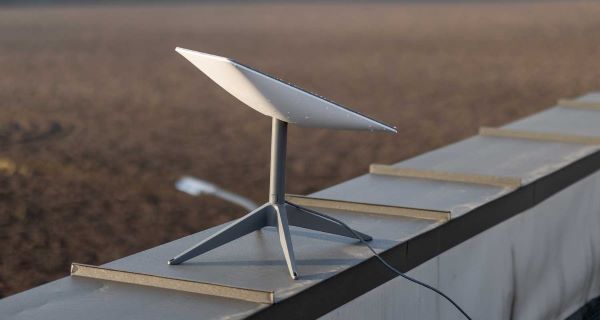Zimbabweans using Starlink face arrest
In South Africa, Icasa has also warned that importing and using Starlink equipment in the country is “illegal” and must stop. Starlink does not have a licence to operate in South Africa, Icasa emphasised last November
- Advertisement -
Zimbabwean authorities are threatening to arrest anyone selling or using Elon Musk’s Starlink satellite internet services, according to reports.
Starlink, owned by SpaceX, has coverage in more than 60 countries and is operational in several African countries, including Nigeria, Mozambique, Zambia, Kenya and Malawi.
- Advertisement -
But in Zimbabwe, where internet connectivity drops away as you leave the capital, Harare – leaving those in more rural areas without basic access to communications – Starlink has been banned by the government.
- Advertisement -
The Postal and Telecommunications Regulatory Authority of Zimbabwe (Potraz), the country’s equivalent of South Africa’s communications regulator Icasa, has threatened to arrest individuals and businesses found distributing and advertising Starlink equipment.
The government-owned information website, H-Metro, said last week that Potraz would conduct nationwide raids to confront all those who may have installed the internet network.
Starlink has yet to be licensed by the regulator, but the service kits have been advertised on social media platforms, including Facebook, and distributed in the country.
A Potraz official said police have arrested two violators, in Victoria Falls and Bulawayo, and their cases are waiting to be heard in court. The official reiterated that selling or using Starlink services anywhere in Zimbabwe is illegal and that the regulator will conduct police raids to arrest any individual or business that violates the regulation.
‘Illegal’ Starlink
- Advertisement -
Starlink is banned in Zimbabwe because the country does not allow unlicensed telecoms providers. The regulator is insisting that Starlink must wait for permission and follow proper processes before starting operations, claiming the frequencies it uses could disrupt other services.
According to Zimbabwean technology website Techzim, the “only solid bit of information we have about the service coming to Zimbabwe comes from Dandemutande (an internet service provider) announcing that they will be partnering to bring the service this year. They have been coy with details of this partnership though.”
In South Africa, Icasa has also warned that importing and using Starlink equipment in the country is “illegal” and must stop. Starlink does not have a licence to operate in South Africa, Icasa emphasised last November.
It’s not known why Starlink has not applied for the licences, but speculation has centred on a requirement under Icasa regulations that licensees must have at least 30% equity ownership from historically disadvantaged people.
Icasa said the public should refrain from buying or operating any equipment provided by entities that are not licensed to operate in South Africa. All equipment must also be “type-approved” by the regulator before it can be sold and used legally in the country’s borders.
“Non-type-approved equipment poses a risk of causing harmful interference to the radio frequency spectrum. It further causes a lack of dissonance among devices operating in the same environment resulting in equipment not being functional. Furthermore, equipment which is not type-approved could potentially explode or implode thus putting consumers in harm’s way,” it said.
- Advertisement -


